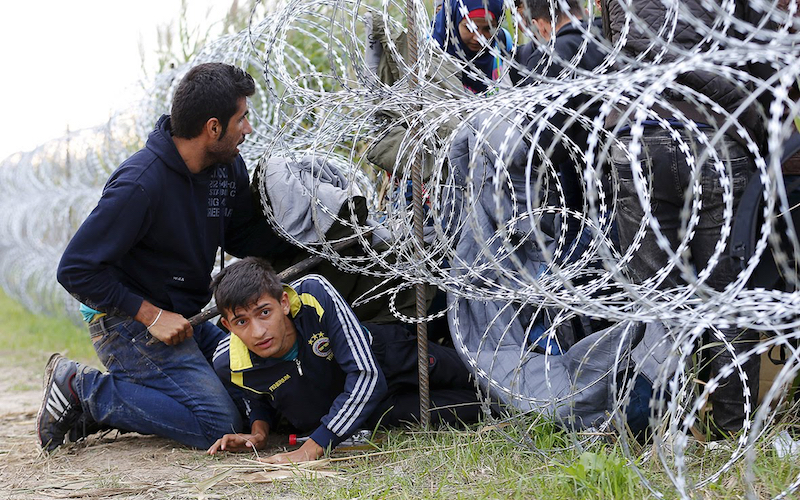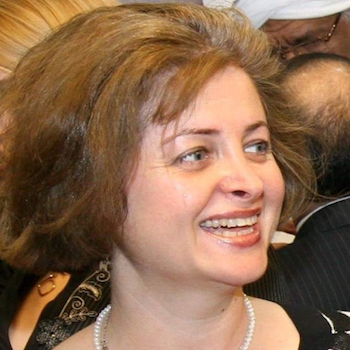
Refugees in Eastern Europe
Although the European Union imposed set quotas on each EU member, Eastern European countries have rejected the quotas and are reluctant to accept refugees. The refugees themselves have expressed reluctance to stay in many countries.
Some countries like Macedonia and Hungary have erected barbed wire fences for the first time since the EU accession.
Romania has also rejected the imposed refugee quota. Romania is NATO’s eastern flank, the EU’s eastern border along 2,050 km, and has a EU internal border along 1,090 km. The country has made financial efforts to properly secure the external EU borders to prevent intrusions, a fact already acknowledged and appreciated by NATO and the EU.
Public opinion in Romania is still divided between reluctance and openness possibly because there is too much confusing information. One explanation may be the fact that politicians, institutions and the media do not adequately inform the public, and people tend to react emotionally.
During a debate organized by Dignitas Foundation in Bucharest on 17 March a group of experienced journalists, some of whom had visited Syria and representatives of the Parliament and academia, there was no consensus or resolution as to whether refugees should be accepted in Romania or whether borders within the EU should be restricted, and how.
Dan Carbunaru, journalist with European Way online publication, focused on the importance of preserving open borders in Europe. He believes that “Europe should not return to fences and border control again. NATO helps in the Mediterranean Sea to cope with this issue. Let us not blame Macedonia, or Greece or Turkey for not coping well with the crisis! Maritime borders are more difficult to protect than borders on land. Romania has stressed since the beginning of the refugee crisis that the source must be dealt with. Public opinion is very inflamed, 82% of Romanians are against the compulsory refugee quotas…”
Ana Birchal, chairperson of the Foreign Policy Commission of the Romanian Chamber of Deputies, said her commission “had the courage and wisdom to reject the refugee quotas since the beginning because the EU treaty stipulates the principle of volunteerism, because Romania has contributed to the EU security in many ways and this should be taken into account when the EU judges each member’s contribution.” In addition, “a difference between genuine refugees and economic migrants must be done,” said Ms. Birchal, “because we have seen that refugees refused countries like Romania and Bulgaria, and I believe that, when you are a genuine refugee and you arrive on a safe land, you bow down and kiss that land, you don’t afford to be choosy and complain that the life standards in Romania do not meet your expectations.”
The capabilities to process refugees in the European hotspots is very limited, only 1,000 refugees have been so far been processed out of 106,000 applications. At this rate, all refugees would be processed in 50 years.
Gabriela Leu, the director of the UNCHR Romania, says that “The border for the refugees is that strip of land where they lie down and get frozen, without food or water, while waiting…Of course each country has the right to manage its border as it wants, but UNCHR also believes that there is a manner to manage these border while complying with the refugees’ rights, these 2 things are not incompatible…Honestly, the issue of the refugees quotas is indeed very difficult, no one has a solution yet…The quotas are part of a solidarity plan for European countries. Indeed, the concept of refugee must be very clear and not confused with migrants!”
Mircea Barbu, freelance journalist who works with several TV public and private stations, focused on the disaster in Syria. He visited Syria and spoke to freedom fighters. There are about 10,000 European fighters in Syria, namely Daesh and freedom fighters and unfortunately most of them fight for Daesh. He made a documentary there about this “handful of freedom fighters” who are countering the spread of Daesh and their atrocities, and about the Kurdish communities.
Mircea said that he, as journalist, had better protection and gear than the fighters, who sometimes had nothing other than a weapon and ammunition. They told him they decided to go to Syria and fight against Daesh in 2 days, after watching the atrocities on television.
Mircea asked the refugees why they want to go to Western Europe instead of remaining in the refugee camps in the Middle East. They replied that life in the Middle East camps is difficult and offers no future even if they are no longer bombed.
The issue of borders in the European Union is challenging. Europe worked in the past to eliminate borders and new restrictive rules would mean a return to the past.
Two Afghans burst into tears when they realized they were in Romania and not in Western Europe, but an Iraqi family have declared that they intend to remain in Romania and they are eager to learn the Romanian language, to integrate, and a job offer had been already made to the head of the family.

